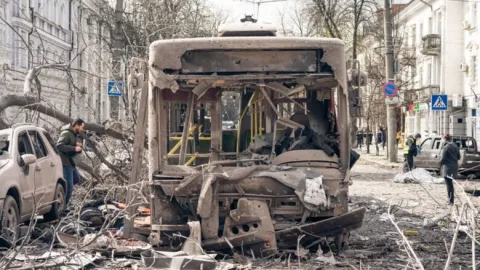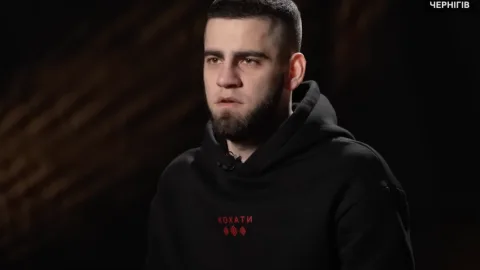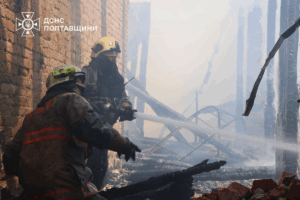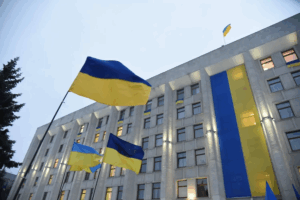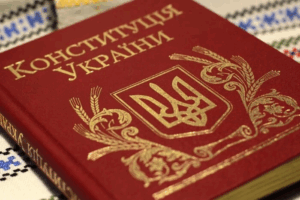[vc_row][vc_column][vc_column_text]
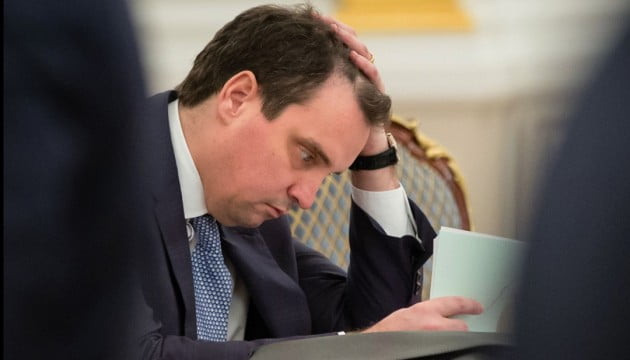
Photo from www.ukrinform.net
[/vc_column_text][vc_column_text]Highlights from the first interview with Aivaras Abromavicius, the Minister of Economic Development and Trade of Ukraine after his scandal resignation announcement, conducted February 5, 2016 by Natalia Nepriakhina for RBK-Ukraine.
The resignation on February 3, 2016 of the Minister of Economic Development and Trade Aivaras Abromavicius and his strident accusations against Ihor Kononenko, an MP and business partner of Ukraine President Petro Poroshenko have not left the front pages of the media.
Every day new angles of the scandal are being brought up. Abromavicius has been approached by everyone, including the President, and the IMF, to withdraw his resignation.
So far, however, he is the only one [of the ministers who have tendered resignations] who has not agreed to withdraw his resignation until a number of requirements are met, that will allow a rebooting of the state administration and will guarantee the non-interference of the Presidential Administration and the Parliament in the work of the government.
At the same time, yesterday his fellow ministers unexpectedly withdrew their resignations.
Under what conditions and with what Prime Minister would Abromavicius agree to work; his conversation with President Poroshenko; the Kononenko/NABU affair; his own political future.
RBK-UKRAINE: For most of the day yesterday. Prime Minister Arseniy Yatseniuk conducted negotiations with you and the other ministers who had tendered resignations earlier, though their statements of resignation were not as impressive as was yours. After last night’s emergency meeting with the Prime Minister, all the other ministers withdrew their statements of resignation, but you did not. Why is that?
Aivaras Abromavicius: The President and the Prime Minister approached us with an appeal to withdraw our resignations because this is a difficult time for our country. They also tried to persuade my deputies to stay. To avoid allegations and emotional stress I decided to go the meeting, to see and hear for myself. At the end some kind of list was proposed in the Cabinet of Ministers, which, if executed would allow the ministers to continue working. The list consisted of demands addressed to the government, the Presidential Administration, and the Parliament.
RBK-UKRAINE: So this list was what was discussed at the meeting of the Cabinet of Ministers?
Aivaras Abromavicius: I do not think a full list of the demands has been prepared anywhere yet. It is being discussed – lists like that take a lot more time to be formulated – the demands themselves are not the most important, but rather, how the demands will be implemented and guaranteed, and a time frame has to be agreed upon…..All the ministers, including the Prime Minister admitted that this was like a cold shower for everyone. And everyone agreed that we find ourselves either two steps from a crash or two steps from a breakthrough.
RBK-UKR: What exactly did you propose? Should there be names named in the list?
Aivaras Abromavicius: I made many recommendations. First, that Ihor Kononenko (deputy, former first deputy head of the BPP fraction) should leave politics. Second, that Shokin must resign (Viktor Shokin, Attorney General). We must seize this opportunity and use it to our greatest advantage in rebooting the system…There was talk of increasing the salaries of civil servants…We discussed the need for a clear division of powers for the president and the Cabinet of Ministers because presently the Presidential Administration is trying very hard to influence government procedure…We discussed the need to curb the power the deputies wield over the Ministers…Only a technocratic approach can lift the country to the next level. And in a technocratic government, the prime minister should be a technocrat. I proposed the candidacy of Natalia Jaresko (Minister of Finance).
RBK-UKR: What did Arseniy Yatseniuk have to say?
Aivaras Abromavicius: All of it was shocking and a big surprise. I said the technocratic prime minister should have carte blanche in appoint ministers who are not engaged in any political intrigues, who do not have any business interests – relying on people who were not part of the government prior to the Maidan. Because we do not trust the old cadres. But we need the support of the parliament to do this. This, I think, would be a path to success…….
RBK-UKR: How do you appraise Kononenko’s act, his resignation yesterday as first deputy chairman of the BPP faction?
Aivaras Abromavicius: That’s not enough. It just shows that he doesn’t fully comprehend the gravity of the situation.
RBK-UKR: Can claims be made against all the deputies in parliament?
Aivaras Abromavicius: There is an adequate number remarkable and noble people in parliament, those who appeared after the Revolution of Dignity – I don’t want to disparage all the deputies in parliament.
RBK-UKR: But without the knowledge of the Prime Minister it would be impossible to execute schemes such as Kononenko and Martynenko [known as “gray cardinals”] execute [filling positions in state-owned enterprises with their people]?
Aivaras Abromavicius: I didn’t say that. What I am saying is that this phenomenon of [these “gray cardinals”] overseeing the money flows from the old regime to the new regime must be stopped. That is not reform – taking the streams from the old regime and pouring them into the new regime. I expected that after the Revolution of Dignity we would be able to take back from the Party of Regions what they had illegally appropriated and that all of it would be returned to the country and not redirected to other places.
RBK-UKR: How long have you been under pressure?
Aivaras Abromavicius: Actually from the very beginning. Not only from Kononenko but from others, as well. Nevertheless, we put up a pretty good fight by implementing transparency, publicity, and other methods. Recently because NAK “Naftogaz of Ukraine” was transferred from the Department of Energy to the Ministry of the Economy, the forces of evil intensified their work – they determined that Abromavichus will not manage “Naftogaz.”
RBK-UKR: What do you know about pressures being applied to other ministers? Was the Prime Minister aware of what was going on?
Aivaras Abromavicius: It’s traditional. Of course pressure was applied.
RBK-UKR: Why do you think the others remained silent?
Aivaras Abromavicius: Ask them.
RBK-UKR: Was the Prime Minister concerned?
Aivaras Abromavicius: Those who have been in politics for a long time consider such things to be normal.
RBK-UKR: You are still officially responsible for your post until Parliament approves your resignation?
Aivaras Abromavicius: Under the current circumstances I don’t see any way that I can continue working, or report on my work, or enforce any reforms. That’s why in my statement of resignation I asked for the immediate approval of parliament. Because I cannot work under current circumstances. I can’t come to parliament and pretend that nothing has happened, that it’s business as usual. Who needs it? A lot of hostility is directed at me from the parliament.
RBK-UKR: Are you still engaged at the ministry in any way?
Aivaras Abromavicius: I am not involved in any of the current affairs of the ministry. I am presently collecting all the documents to hand over to the State Anti-Corruption Agency on Monday.
RBK-UKR: Have you assembled enough facts? What are you hoping the SACA will do?
Aivaras Abromavicius: ….I am hoping that this new agency will work in a completely new way. My declarations will serve as a test. People know about them, they are watching and listening, and I truly expect a good result.
RBK-UKR: Yegor Sobolev, chairman of the parliamentary committee on combating corruption has invited you to attend the meeting to be held February 11. Will you go?
Aivaras Abromavicius: I don’t know yet. By the way, he supports me. I have a lot of support. I didn’t expected such positive feedback from the general population. I think my act has inspired a sense of hope that real change in the country can occur. This opportunity must be utilized and implemented as soon as possible.
RBK-UKR: Prior to submitting your resignation you met with several ambassadors and told them that you were going to resign because you were being politically pressured. Did they support you or did they try to dissuade you?
Aivaras Abromavicius: I met with the Swedish ambassador – we are on friendly terms. I lived in Sweden seven years. He suggested that I meet with other ambassadors, as well. The conversations were open – I told them I was resigning. Predictably, the ambassadors brought up good points, that it is a difficult time for the country and perhaps I should moderate my tactic. In the end they all expressed their full support. They want our country to flourish.
RBK-UKR: Along with the ambassadors, yesterday the Managing Director of the IMF, Christine Lagarde, expressed her deep concern. Has your resignation put the next tranche at risk?
Aivaras Abromavicius: There are deep problems. It’s not a question of changing two-three things. We have to adopt a new approach and way of dealing with the existing problems. We cannot sweep things under the carpet and pretend that everything is alright. Anyone who wants Ukraine to move ahead and prosper understands this.
RBK-UKR: After yesterday’s events will Arseniy Yatseniuk remain prime minister?
Aivaras Abromavicius: I do not wish to speculate. All I want to say is that we have an opportunity to reboot our government. The Cabinet of Ministers is an outdated overloaded bureaucratic system. It is incumbent on us to implement changes as soon as possible – by collaborating with the Canadian experts, for example – Canada has the most advanced system with a most attractive work environment where efficiency and professionalism are paramount. That is what I propose: to get rid of the Cabinet of Ministers with its huge secretariat and replace it with a small, efficient Office of the Prime Minister….
RBK-UKR: Do you think that with your departure things will stall?
Aivaras Abromavicius: No, I think that many of the things that have been started will continue to develop nicely. The fact that my resignation has received so much publicity will help ensure that many of the processes will become more transparent as time goes by.






